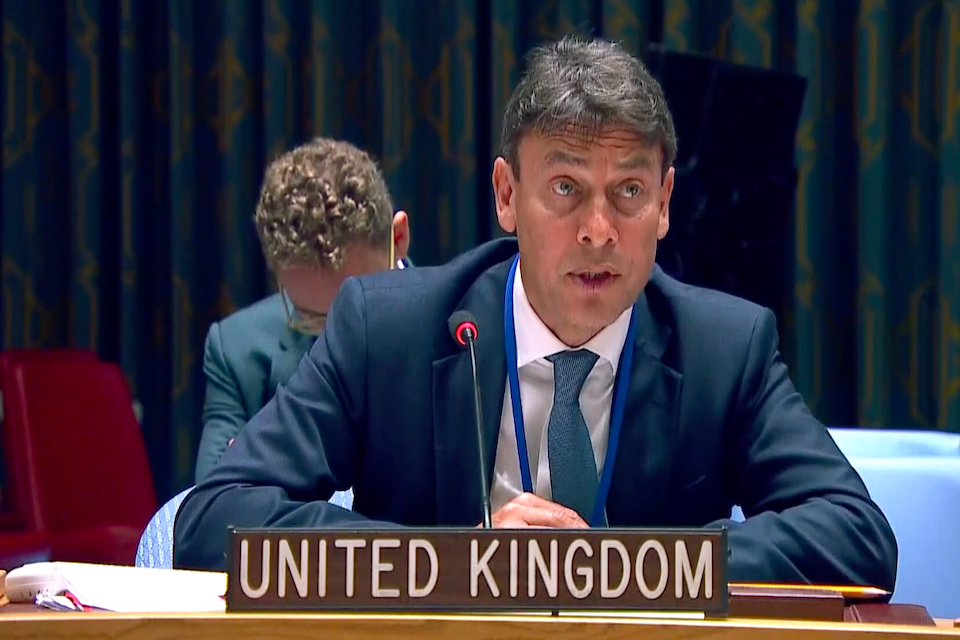The importance of sustained international cooperation to secure and defend justice
Statement by Chanaka Wickremasinghe, UK Legal Adviser at the UN, at the UN Security Council briefing on the International Residual Mechanism for Criminal Tribunals

Thank you, Mr President.
As Judge Agius addresses us for the last time as President of the Mechanism, I congratulate him for his successful tenure and thank him warmly for his unstinting service and for his presentation today. He has led the Mechanism expertly, and has ensured very significant progress on its mandate, despite the global pandemic. And I welcome the Secretary-General’s proposal to appoint Judge Gatti Santana as President Agius’ successor.
I also thank Prosecutor Brammertz for his report and commend his recent work, and that of his office, including in confirming the deaths Protais Mpiranya and Phénéas Munyarugarama.
Mr President,
I would like to make three points about the Mechanism today.
First, on the importance of justice and of defending justice.
We are now seeing appalling barbarism and heinous acts committed by Russia in Ukraine on a scale not seen in Europe since the dark days in Bosnia and Herzegovina in the 1990s. The Mechanism stands as a reminder that the Security Council can and should act to ensure accountability for atrocity crimes. Our commitment to the Mechanism is unwavering and we will continue to support it in implementing its vision of being a small, temporary and effective organisation.
Sadly, there are some who smear the Mechanism and its predecessors, who glorify war criminals and who deny the genocides that happened in Rwanda and Bosnia and Herzegovina. We condemn these false narratives and denial, which punish victims, and prevent societies creating the prosperous future that they deserve. It is brazenly dishonest and dangerous to promote the idea that peace and reconciliation are undermined by the careful and rigorous work of the Mechanism and its independent judges.
Second, on the future of the Mechanism.
As the Mechanism looks forward to its post-judicial phase, there remains vital work to be done. Four fugitives remain at large, we await the outcomes of two appeals and we look forward to the timely trial of Félicien Kabuga, while accepting that the Mechanism must take into account his medical requirements.
But the work does not stop there. There are sentences to be enforced, witnesses to be protected and archives to be maintained.
We support this important work but we also expect the Mechanism to be as lean as it can be, including by developing detailed completion timelines across the Mechanism’s functions and by ending, limiting or transferring functions when the appropriate time comes.
Third, on the importance of cooperation with the Mechanism. The Mechanism’s successes are the result of significant and sustained international cooperation.
We must therefore again raise the Mechanism’s referral of Serbia to the Security Council, for the ongoing failure to arrest and transfer Petar Jojić and Vjerica Radeta. This continued non-compliance is serious, and follows years of requests, considerations and discussion. We urge Serbia to comply with the Mechanism’s order.
We commend the Mechanism’s work building capacity in the Western Balkans. But judicial cooperation within the region still remains inadequate. We call on the countries in the region to remove impediments to this.
Finally, we are concerned about the situation of the acquitted and released persons relocated to Niger, who are now under effective house arrest. We call upon Niger and the Mechanism urgently to find a lasting solution to this problem.
Thank you Mr President.